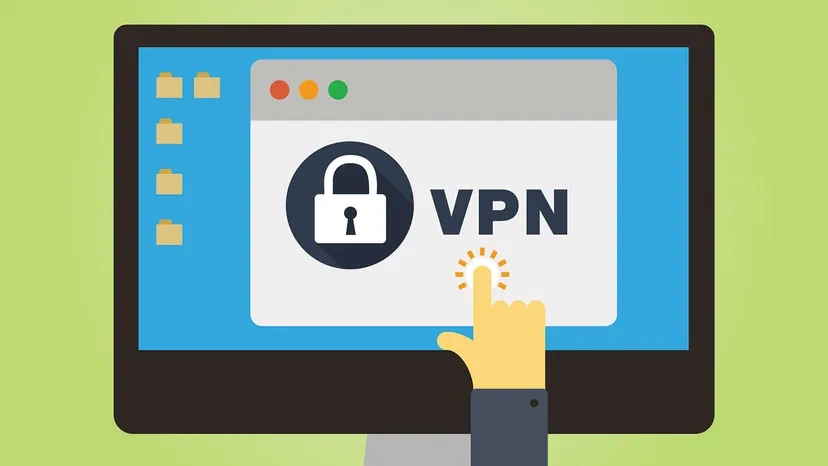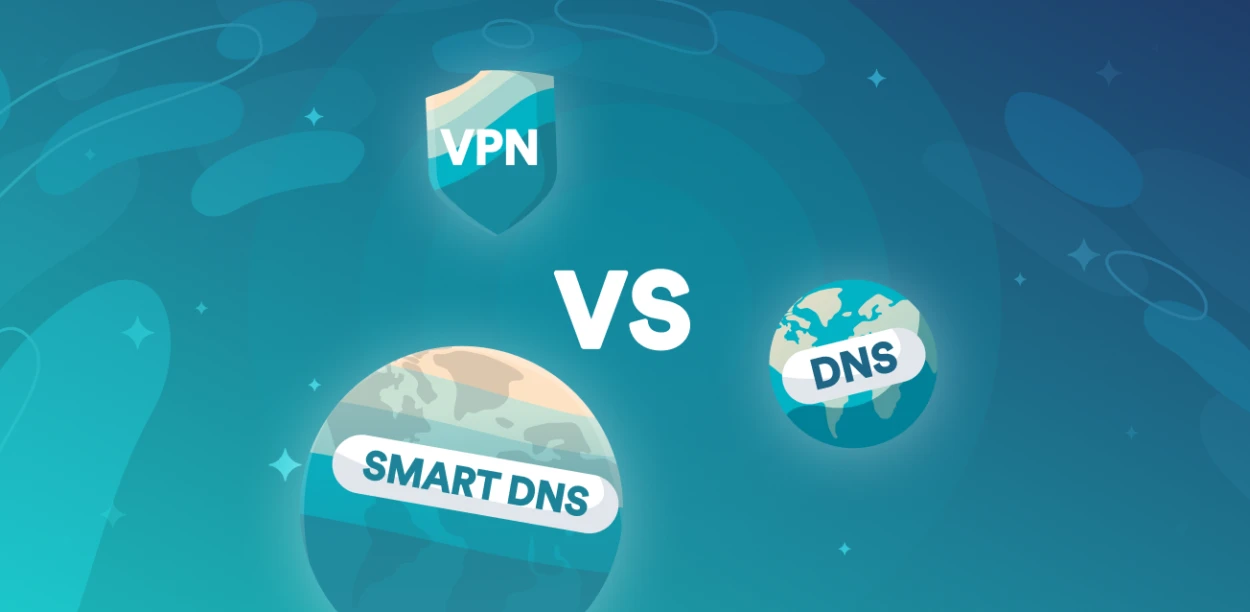In today’s digital age, it’s essential to take measures to protect your online privacy and security. Two popular tools for doing so are VPNs and DNS cloaks.
While they may seem similar, they function differently and offer different levels of protection.
A DNS is a system that converts domain names into IP addresses so that an internet browser can understand an input. Whereas, a VPN is an encryption technology to access a distant network over the internet.
In this article, we’ll explore the differences between a VPN and a DNS cloak and help you decide which one is right for you.
What Is A VPN?

A VPN, or virtual private network, is a tool that creates a secure, encrypted connection between your device and a remote server.
This connection is often referred to as a “tunnel” because it creates a private, protected path for your data to travel through.
When you connect to a VPN, your internet traffic is routed through this tunnel, making it difficult for anyone to intercept or monitor your online activity.
VPNs are often used for a variety of purposes, including accessing geo-restricted content, protecting your online privacy, and enhancing your online security.
VPNs are used to mask your IP address, making it more difficult for websites and services to track your location or identify you.
There are many kinds of VPNs with a different sets of benefits available. While some VPNs are free of cost, others may require you to submit a subscription fee.
Some VPNs offer faster speeds and more server locations, while others prioritize security and privacy.
What Is A DNS Cloak?

A DNS cloak, also known as DNS encryption or DNS over HTTPS (DoH), is a tool that encrypts your Domain Name System (DNS) requests.
When you type a website URL into your browser, your device sends a DNS request to translate that URL into an IP address. This IP address is then used to connect your device to the website’s server.
By encrypting your DNS requests, a DNS cloak makes it more difficult for your internet service provider (ISP) or other third parties to monitor or intercept your online activity. DNS cloaks can also help protect against DNS spoofing and other types of cyberattacks.
Like VPNs, there are many different DNS cloaking services available, each with its own set of features and benefits. Some DNS cloaks are built into web browsers, while others require additional software or configuration.
Differences Between A VPN And A DNS Cloak
| Feature | VPN | DNS Cloak |
|---|---|---|
| Encryption | Encrypts all internet traffic | Encrypts only DNS requests |
| IP Address Masking | Yes | No |
| Traffic Routing | Routes all traffic through a remote server | Routes only DNS requests through a remote server |
| Internet Speed Impact | Can slow down internet speed | Usually has minimal impact on internet speed |
| Privacy Protection | High level | Moderate level |
| Protection against DNS Spoofing | No | Yes |
While VPNs and DNS cloaks are both tools for protecting your online privacy and security, they function differently and offer different levels of protection. Here are some of the key differences between the two:
- Encryption
VPNs encrypt all of your internet traffic, including both your DNS requests and the content you access.
This means that all of your online activity is protected from monitoring or interception, regardless of whether it’s related to web browsing, email, messaging, or other applications.
DNS cloaks, on the other hand, only encrypt your DNS requests. While this can help protect your privacy and security to some extent, it doesn’t provide the same level of protection as a VPN.
- Network location
VPNs allow you to connect to remote servers located nearby. This can help you exit geo-restrictions, access content that’s blocked in your region, and mask your IP address.
DNS cloaks, on the other hand, don’t change your network location. Instead, they encrypt your DNS requests and send them to your ISP‘s DNS server or a third-party DNS server.
This means that your network location is still visible to websites and services, even though your DNS requests are encrypted.
- Speed
Because VPNs encrypt all of your internet traffic and make a way through a remote server, they can turn your internet speed slow.
This is especially true if you’re connecting to a server that’s located far away from your physical location.
DNS cloaks, on the other hand, don’t route all of your internet traffic through a remote server, so they generally don’t have as much of an impact on your internet speed.
However, because DNS requests are still being sent to a remote server, there may be some additional latency.
VPNs slow down the internet’s speed whereas, DNS creates no such effect.
- Privacy
VPNs provide a high level of privacy by encrypting all of your internet traffic and masking your IP address. This makes it difficult for websites and services to track your online activity or identify you.
DNS cloaks, on the other hand, only encrypt your DNS requests. While this can help protect your privacy to some extent, your internet service provider or third-party DNS servers may still be able to see which websites you’re visiting.
Therefore, for online safety, VPN is a suitable encryption source, whereas DNS privacy protection is limited to DNS requests only.

Which One Is Right For You?
Deciding whether to use a VPN or a DNS cloak depends on your specific needs and priorities. If you’re looking for the highest level of online privacy and security, a VPN is probably the best choice.
VPNs encrypt all of your internet traffic and route it through a remote server, making it difficult for anyone to monitor or intercept your online activity.
If you’re primarily concerned about protecting your DNS requests and avoiding DNS spoofing or other types of cyberattacks, a DNS cloak may be a better choice.
DNS cloaks encrypt your DNS requests and can help protect your privacy to some extent.
It’s worth noting that using both a VPN and a DNS cloak can provide additional protection. By encrypting both your internet traffic and your DNS requests, you can enhance your online security and privacy even further.
FAQs (Frequently Asked Questions)
Do I need a VPN if I have DNS?
Yes, you do because a DNS translates a domain address while a VPN is helpful in encrypting all of your internet traffic and routes it through a remote server.
Can DNS get hacked?
DNS can get hacked by malicious software to steal your private information and take you to harmful websites.
Can DNS be tracked?
If you let your DNS be monitored then it can track down the IP addresses of DNS requests and view sites opened to your network. Tracking could help in detecting the functioning of DNS requests.
Can I use both a VPN and a DNS cloak at the same time?
Yes, using both a VPN and a DNS cloak can provide additional protection. By encrypting both your internet traffic and your DNS requests, you can enhance your online security and privacy even further.
Conclusion
In conclusion, VPNs and DNS cloaks are both valuable tools for protecting your online privacy and security.
While they function differently and offer different levels of protection, both tools can help you avoid monitoring, interception, and cyberattacks.
By understanding the differences between these two tools and choosing the one that’s right for your needs, you can take an important step toward safeguarding your online activity.

